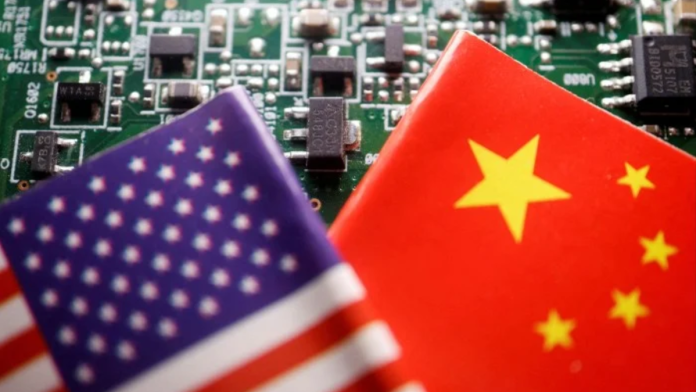US authorities have reportedly taken a powerful step to stop sensitive technology from reaching restricted destinations. Location trackers are being secretly installed in certain shipments of advanced computer chips, specifically those considered “high risk” for being redirected to places under US export restrictions, with China as a main concern.
The operation focuses on preventing powerful AI chips and servers from being secretly redirected to restricted destinations, ensuring that sensitive US technology does not fall into the hands of entities that may misuse it.
The monitored chips are high-performance components used in artificial intelligence (AI) systems, supercomputers, and advanced servers. These chips can serve both civilian and military purposes, making them a key focus for export control. The United States enforces strict rules to keep such technology away from entities that might misuse it.
The trackers are part of targeted investigations into suspicious shipments. If a shipment is believed to be at risk of diversion — meaning sent somewhere it should not go — the device can track its movement. Authorities can then confirm whether the package reaches its approved buyer or is redirected to a prohibited location.
Chip tithe to Uncle Sam — US cashes in as Nvidia, AMD pay 15% for China AI sales licenses
How the Location Trackers Work
Location trackers are small devices that transmit their position in real time. US law enforcement has long used similar technology to monitor restricted goods like aircraft parts or specialised machinery. Now, the method is being applied to shipments containing advanced semiconductors.
In these cases, trackers are discreetly hidden inside the packaging of servers that include high-performance chips. These servers are made by companies such as Dell and Super Micro and often contain chips from manufacturers like Nvidia and AMD. Once installed, the devices remain unnoticed by buyers or handlers.
🇨🇳 Chipgate — DOJ charges Chinese nationals in covert scheme to move Nvidia’s AI tech to Beijing
By monitoring the trackers, investigators can follow a shipment from its origin to its final destination. If it ends up in a suspicious or restricted location, the tracking data can serve as evidence in legal cases. This gives authorities a direct and reliable record of where the goods travel, making it easier to prove export violations.
The technology also allows a quick response. Instead of relying on delayed paperwork or customs reports, authorities can act immediately if a shipment’s path raises concerns. This makes it harder for illegal diversions to succeed and adds a layer of deterrence for potential offenders.
Why the US Is Taking This Step
The US has been increasingly concerned about the security of its semiconductor supply chain. Advanced chips are vital for AI development, data processing, and high-level military computing. If they reach certain countries or organisations, they could be used in ways that challenge US interests.
Chip secrets to Kremlin? Russian man sentenced for leaking Dutch tech to Moscow
Export restrictions are meant to block these transfers, but some shipments are secretly rerouted after leaving the US — a process known as illegal diversion. This can involve false paperwork or complex shipping routes that hide the real destination. Tracking devices give authorities a way to see past these tactics.
Sources say the trackers are only used in cases where there is a clear reason for suspicion. The focus is often on servers containing top-tier AI chips, which are both expensive and strategically important. Such chips are in high demand worldwide, including in regions where US restrictions apply.
While location tracking has been used for years in other industries, its application to semiconductor shipments marks an important step in technology enforcement. It reflects the high stakes involved in keeping the most advanced computing components under control and out of the hands of unauthorised users.


